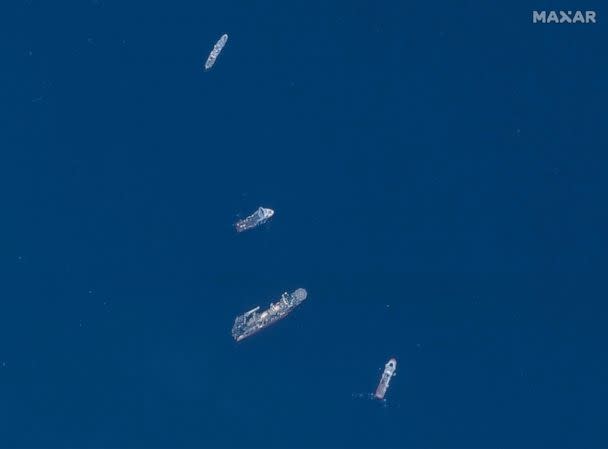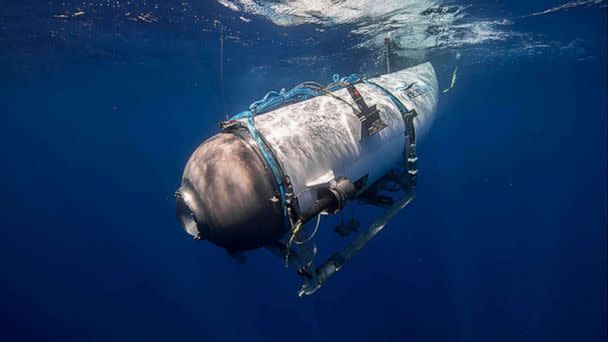Titan families told of potential 'implosion' sound Navy detected before news reports
The U.S. Coast Guard informed the families of the Titan crew that the Navy had detected a sound consistent with an implosion in the area the submersible went missing before that sound became public knowledge Thursday evening, a defense official said Friday.
The Navy was able to detect what turned out to be the implosion of the Titan submersible by use of the Sound Surveillance System (SOSUS), originally a Cold-War-era system designed to track Soviet submarines, the official said.

MORE: Titanic submersible: What a 'catastrophic implosion' means and what officials found
But the official said that on Sunday, SOSUS picked up an anomaly near the site of the Titanic wreck, and the Navy set its specialists at work to analyze its sound signature. In the meantime, the Coast Guard was informed the Titan had gone missing, and had begun its search and rescue efforts.
After analyzing the sound, the Navy determined it was consistent with either an implosion or explosion, and was able to triangulate its location to area where the sub had lost communications. The Navy immediately passed its findings on to the Coast Guard, according to the official.
MORE: Titanic submersible victims' family mourns: 'Enormous tragedy and devastation'
The official said the sound, while consistent with an implosion, was not taken as proof the Titan was destroyed, which is why rescue efforts continued until its debris was found Thursday morning.
"This information was considered with the compilation of additional acoustic data provided by other partners and the decision was made to continue our mission as a search and rescue and make every effort to save the lives on board," a senior Navy official said in a statement Thursday.

MORE: Who will pay for Titan submersible's search and rescue? The US taxpayer
The defense official said the choice of whether to publicly acknowledge the apparent implosion or explosion discovered by the Navy on Sunday belonged to the Coast Guard. It is not clear exactly when the families were informed, or why the Coast Guard chose not to inform the public of the apparent implosion, even as it acknowledged later banging sounds were detected that gave some hope that a rescue was still possible.
MORE: What to know about OceanGate, the company behind the missing Titanic submersible
The official emphasized that the Coast Guard took care to inform the families of the Navy's discovery before it was known to the public.
The Navy's recovery mission is currently on hold as the service awaits guidance on next steps from the Coast Guard, which is the lead U.S. agency for the effort.
The Navy's portable FADOSS crane capable of retrieving heavy objects from great depth is standing by in St. John's, Newfoundland, but it is up to the Coast Guard whether efforts will continue to contract a ship that could take the crane out above the debris site for recovery, the official said.
Titan families told of potential 'implosion' sound Navy detected before news reports originally appeared on abcnews.go.com
